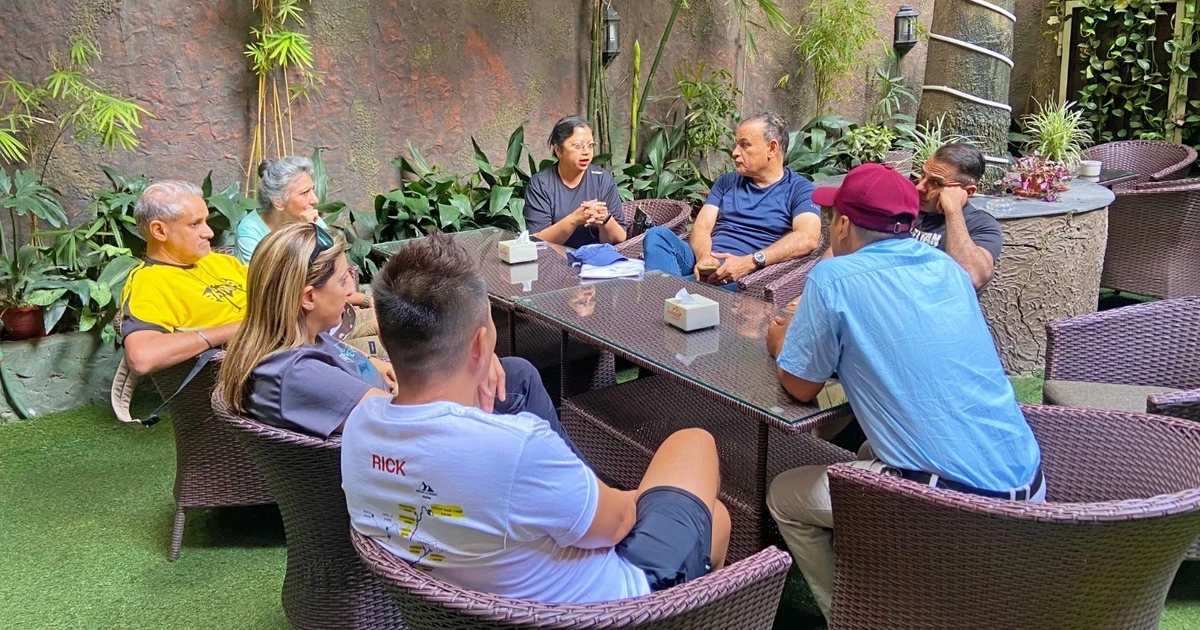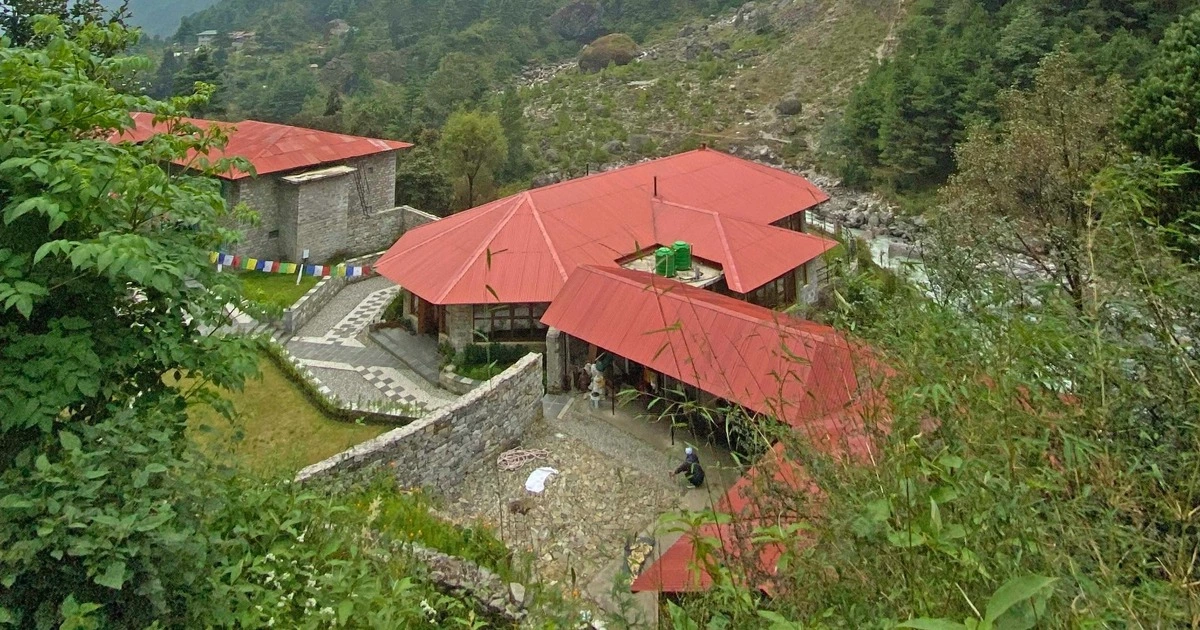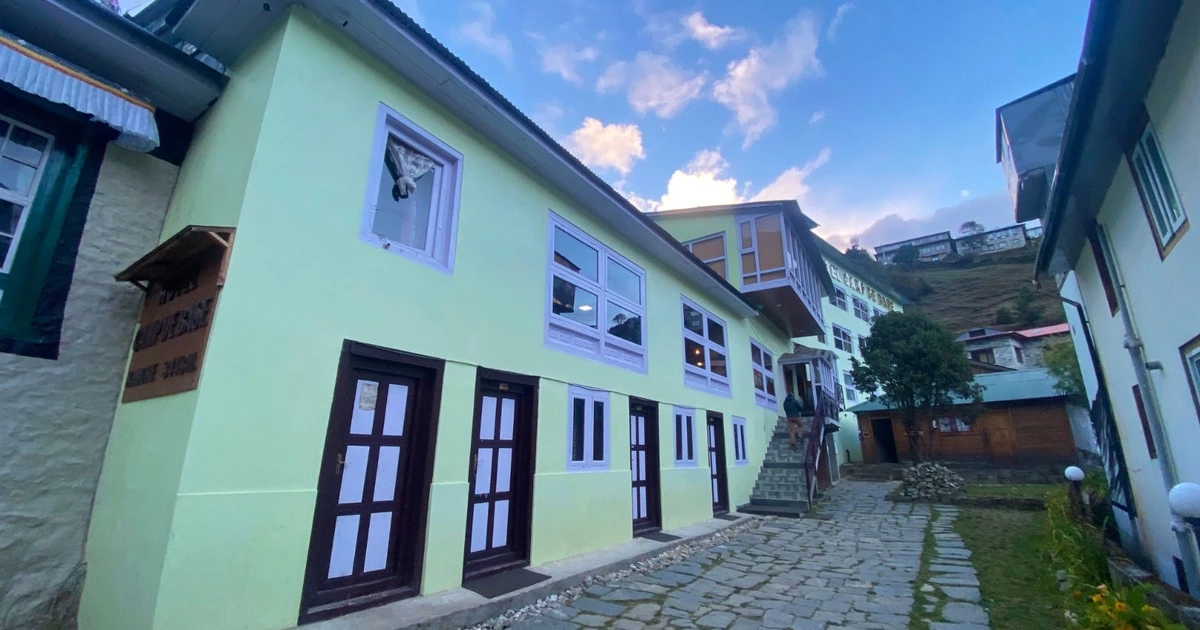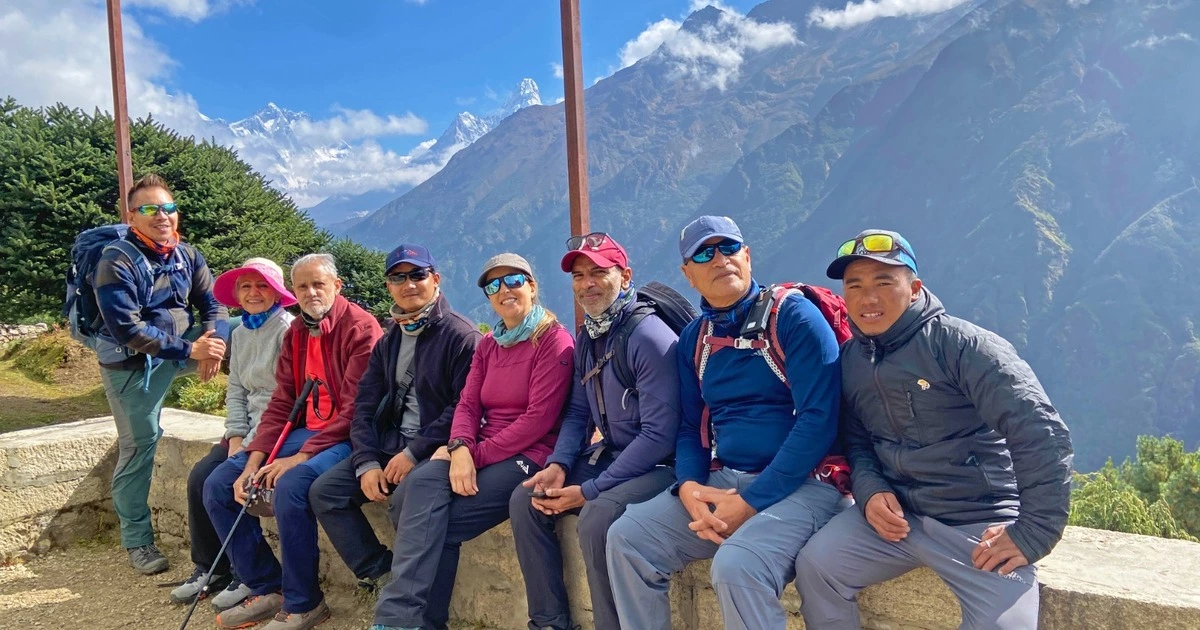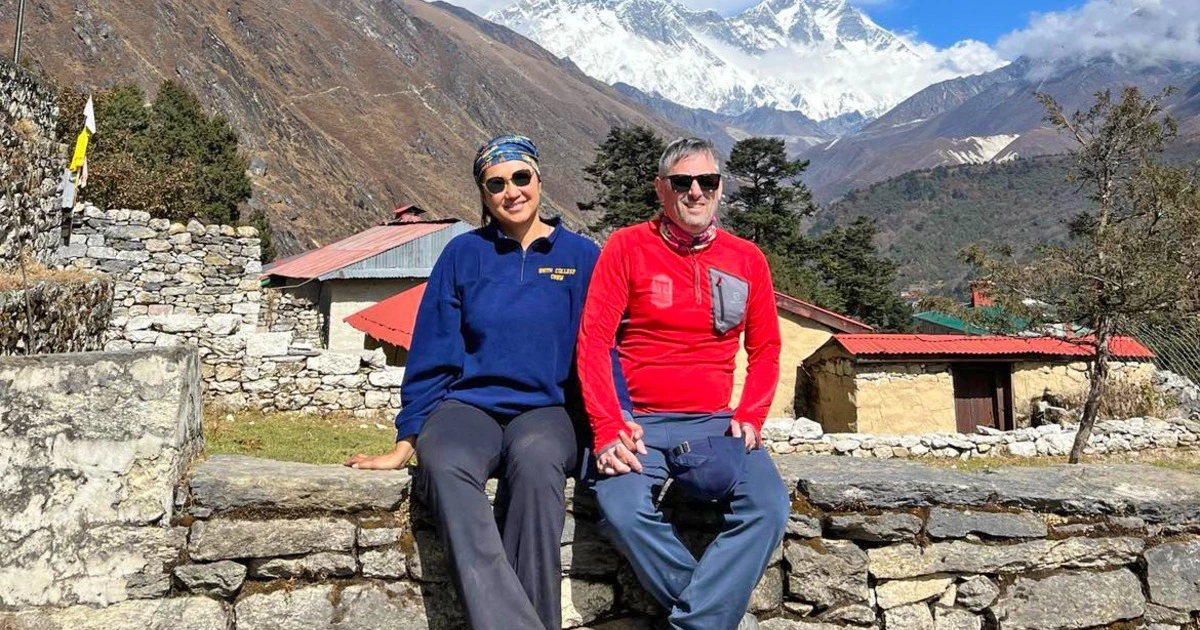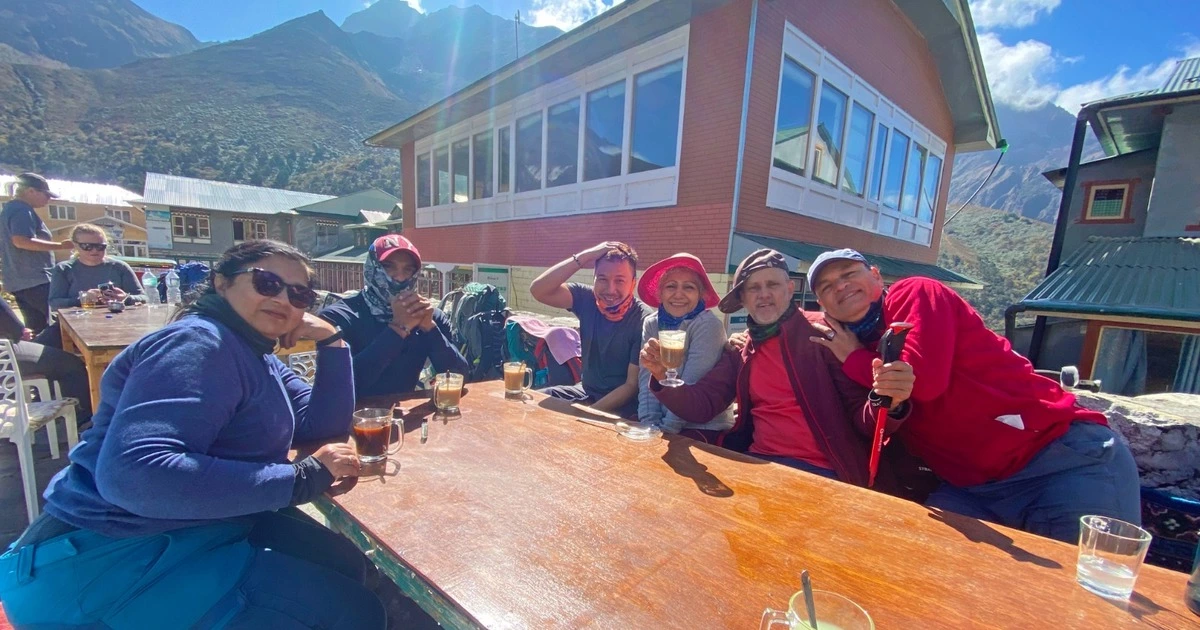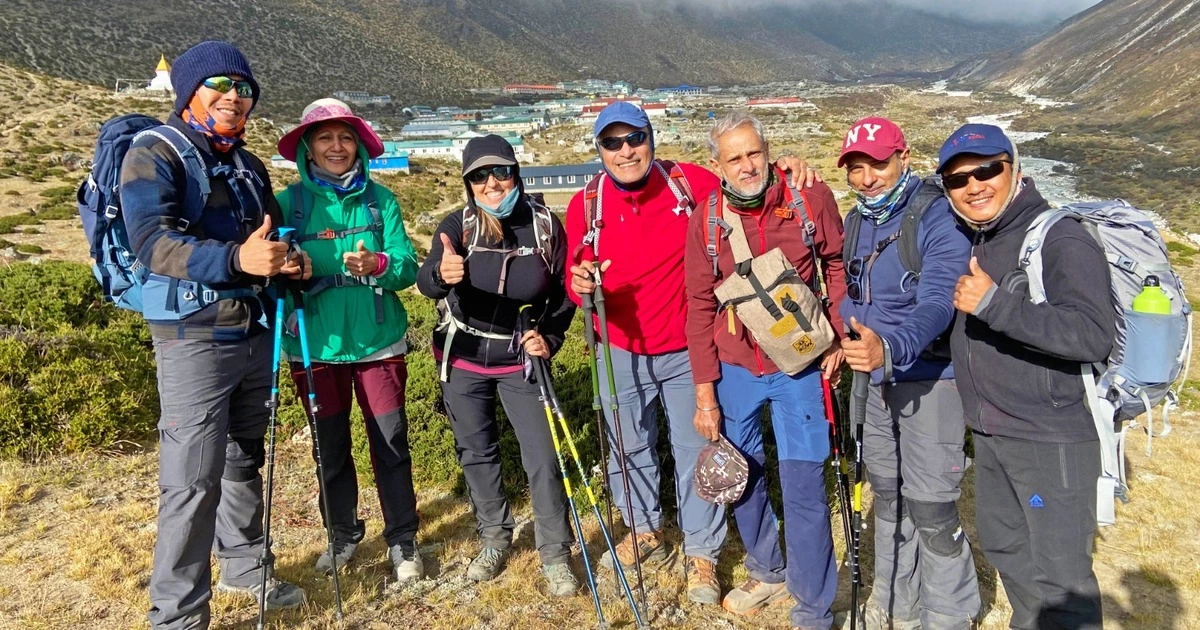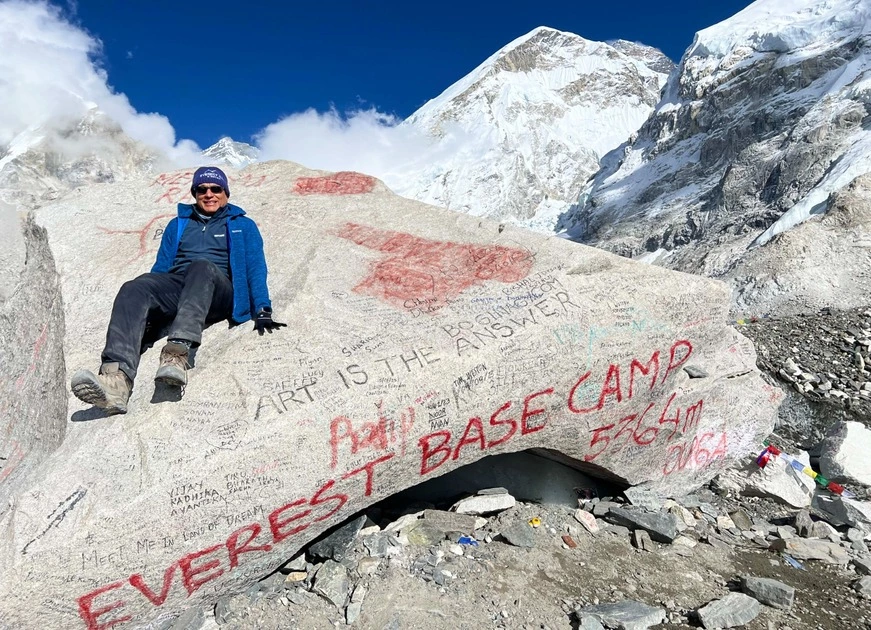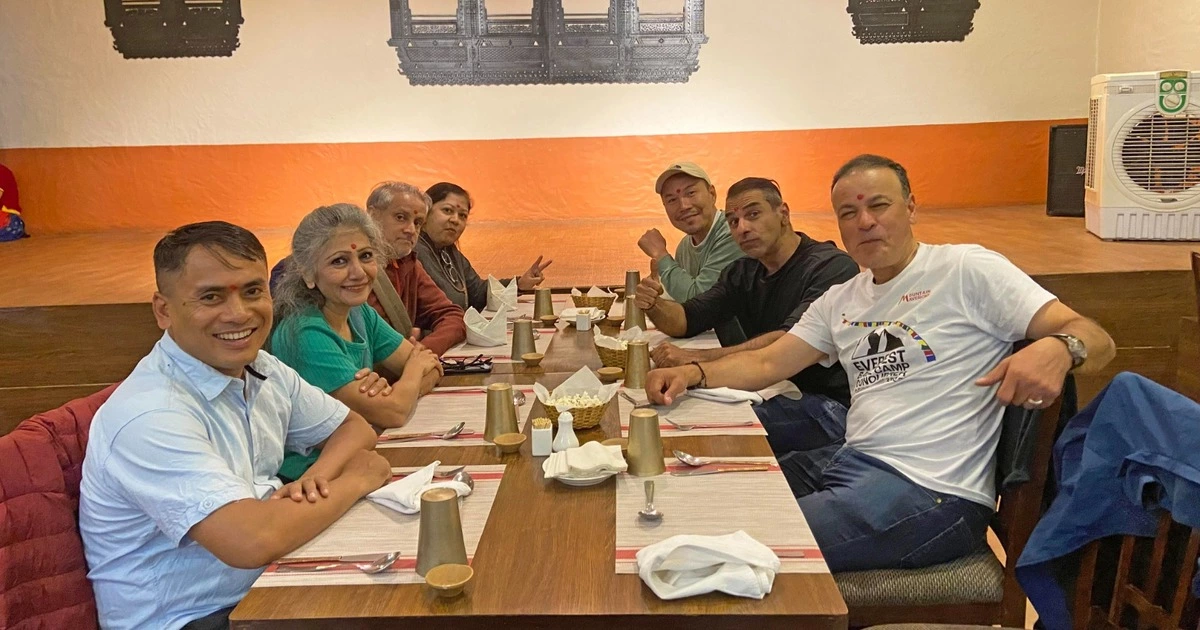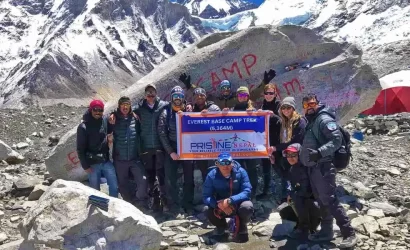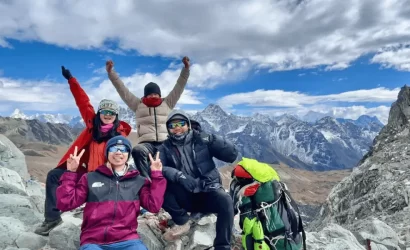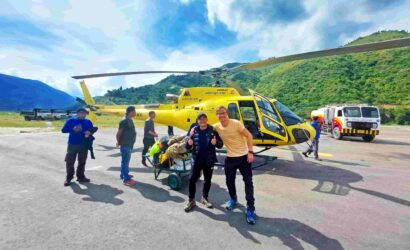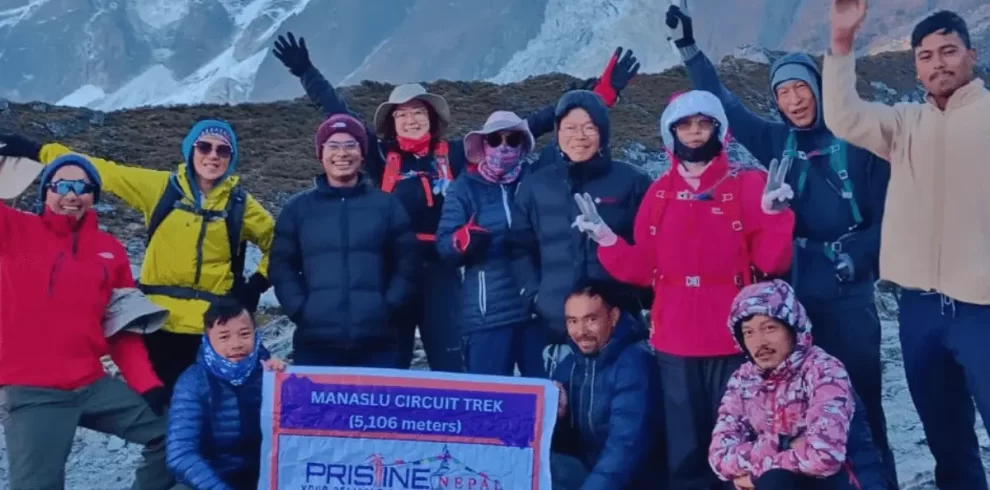We present you “Everest Base Camp Trek for Senior Citizen”, our specially crafted trekking package, tailored for senior citizens and those who prefer a more leisurely pace. Recognizing that not everyone can follow the standard 12-day itinerary, our company has designed a trek that allows individuals to reach the Everest Base Camp in a relaxed manner over an extended period.
We understand that the Everest Base Camp holds a special place in the dreams of many, and our goal is to make this dream attainable for seniors, elderly people, and slow walkers. The itinerary ensures ample time for rest, with short and well-planned rest stops, allowing trekkers to acclimatize gradually to the high altitudes of the Everest region. Daily elevation gains are minimal, ensuring a comfortable and safe journey.
To enhance the overall experience, we have curated the best accommodations and dining options throughout the trip, prioritizing comfort and well-being. Our package stands out as a unique offering among trekking companies in Nepal, emphasizing that age is merely a number.
With determination and our unwavering logistical support at every step, we aspire to help senior and elderly individuals realize their dream of reaching the Everest Base Camp.
Join us on this extraordinary adventure, where we not only navigate the majestic trails of the Everest region but also navigate the dreams of our cherished guests, turning aspirations into lasting memories.
EBC trek for Senior Citizen Overview
Trip Highlights
• Dedicated to the senior/elderly citizens for a comfortable and relaxed experience
• Reaching the Everest Base Camp (5,364m/17,600ft)
• Enjoy the hassle-free journey with a scenic helicopter ride (KTM-LUK-KTM)
• Experience the thrill of crossing the iconic Hillary Suspension Bridge
• Explore Namche Bazaar – the gateway to the Everest Base Camp
• Delight in a hearty breakfast or a tea break at the highest-situated Hotel Everest View (3,890m/12,762ft)
• Explore one of the oldest and largest Tyangboche/Thyangboche monastery
• Wander around the vibrant Sherpa villages, gaining insight into the local lifestyle
• Traverse the UNESCO-listed Sagarmatha National Park, home to diverse flora and fauna
• Witness the awe-inspiring Himalayan panorama, including Everest, Nuptse, Lhotse, Ama Dablam, and more
Outline Itinerary
- Day 01: Arrival in Kathmandu (1,400m/4,600ft) and transfer to the Hotel
- Day 02: Preparation and rest day in Kathmandu
- Day 03: Ride a sharing helicopter from Kathmandu to Lukla (2,800m/9,186ft) and trek to Phakding 2,660m/8,727ft) – 45-60 mins heli ride and 3-4 hrs trek
- Day 04: Trek to Jorsalle (2,850m/9,350ft) – 3 hrs
- Day 05: Trek to Namche Bazar (3,440m/11,286ft) – 4 hrs
- Day 06: Acclimatization day at Namche Bazar
- Day 07: Trek to Fungi Thanga (3,200m/10,499ft) – 4 hrs
- Day 08: Trek to Pangboche (4,000m/13,123ft) via Tyangboche Monastery (3,860m/12,664ft) – 4hrs
- Day 09: Trek to Dingboche (4,450m/14,600ft) – 4 hrs
- Day 10: Trek to Thukla 4,610m/15,125ft) – 3 hrs
- Day 11: Trek to Gorakshep 5,180m/16,995ft) – 5 hrs
- Day 12: Trek to Everest Base Camp (5,364m/17,600ft), back to Gorakshep and ride a helicopter to Lukla then back to Kathmandu by sharing the helicopter
- Day 13: Free day in Kathmandu
- Day 14: Departure day from Kathmandu
Typical Day on the Trek
Every day begins with breakfast around 6:30-7:00 AM. Your breakfast is pre-ordered the night before to ensure prompt service. Prior to heading to the dining hall for breakfast, we recommend packing your duffel bag and leaving it ready. Our porter will pick it up and set off at their own pace. You’ll only need your daypack with essential items.
After breakfast, the trek begins. Throughout the day, immerse yourself in the breathtaking scenery of the Everest region. Capture photos and explore local villages along the way.
As our overnight stops are nearby and of short distance, we’ll have lunch at the teahouses where we’ll be staying overnight. Upon reaching the teahouse, you can enjoy your lunch, relax, and appreciate the surroundings. After lunch, your guide will likely take orders for dinner.
In the evening, around 6-7 pm, dinner will be served. Following dinner, fresh fruits will be served, and your guide will take your order for breakfast as well as brief you about the plan for the next day. In the meantime, you can engage in friendly conversations with fellow trekkers or your guide.
Once these activities conclude, you can choose to go to bed early, play cards, or enjoy some personal time according to your preference.
Are there any age criteria for this package?
This specially curated trekking package is primarily designed for seniors or elderly individuals aged 50 and above. However, it’s important to note that there are no strict age restrictions or criteria for participation. Our goal is to cater to the unique needs and preferences of senior citizens, ensuring a comfortable and enjoyable trekking experience.
In addition to seniors, this package is also well-suited for individuals who identify as slow walkers and prefer to undertake the Everest Base Camp trek at a leisurely pace. The itinerary is thoughtfully crafted to accommodate a variety of walking speeds, allowing participants to savor the journey and make the most of their trekking adventure.
Being a senior citizen, is my safety and satisfaction guaranteed?
As a senior citizen embarking on the Everest Base Camp trek, your safety and satisfaction are our top priorities. The entire package is meticulously crafted with a focus on ensuring your well-being throughout the journey.
Given the high-altitude nature of the Everest Base Camp trek, our itinerary is designed thoughtfully to mitigate potential challenges. The trek involves short daily walks of only 3-4 hours, covering minimal distances, and a gradual altitude gain of 200-500 meters per day. To facilitate acclimatization, dedicated rest days are incorporated into the itinerary, allowing your body to adjust to the elevations.
Our experienced guides play a crucial role in ensuring your health and safety. They monitor your well-being regularly, including daily checks on oxygen levels. Your guides are trained to assess and respond to any health concerns, providing constant support at every stage of the trek.
Before the trek commences in Kathmandu, our team conducts a thorough check of your packing lists to ensure you are well-prepared. Throughout the trek, our official team maintains regular communication with you, offering guidance and support. In the event of emergencies, we have established protocols for immediate and effective actions.
All logistical arrangements are made in advance, contributing to a seamless and comfortable trip. With our comprehensive approach, we are committed to guaranteeing not only your safety but also your satisfaction, ensuring that your Everest Base Camp experience is both memorable and fulfilling.


